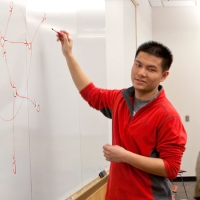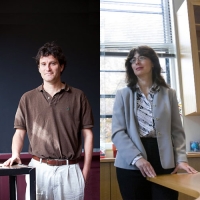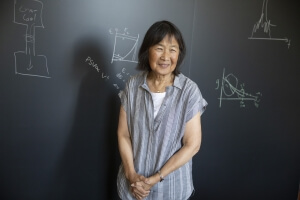Search Results
Computational Science and Engineering Capstone Project
APCOMP 297R
2025 Fall
The capstone course is intended to provide students with an opportunity to work in groups of 3-4 on a real-world project. Students will develop novel ideas while applying and enhancing skills they have acquired from their core courses and electives. By requiring students to complete a substantial an...
Computational Science and Engineering Capstone Project
APCOMP 297R
2026 Spring
Christopher Thorpe
Wednesday
12:45pm to 3:30pm
The capstone course is intended to provide students with an opportunity to work in groups of 3-4 on a real-world project. Students will develop novel ideas while applying and enhancing skills they have acquired from their core courses and electives. By requiring students to complete a substantial an...
Spectral Graph Theory in Computer Science
COMPSCI 2252
2026 Spring
Salil Vadhan
Monday, Wednesday
9:45am to 11:00am
Eigenvectors and eigenvalues of graphs and their applications to computer science problems, such as clustering, solving linear systems, derandomization, sampling via MCMC, counting, web search, and maximum flow.
Space Science and Engineering: Theory and Applications
ESE 160
2026 Spring
Robin Wordsworth
Tuesday, Thursday
10:30am to 11:45am
This course is an introduction to the challenges involved in designing spacecraft for observation of Earth and exploration of other planets. Topics covered include basic atmospheric and planetary science, key principles of remote sensing, telemetry, orbital transfer theory, propulsion and launch sys...
Innovation in Science and Engineering: Conference Course
ENG-SCI 139
2025 Fall
David Ricketts
Tuesday, Thursday
1:30pm to 2:45pm
This class integrates perspectives from leading innovators with collaborative practice and theory of innovation to teach and inspire you to be more innovative in your life and career. Our approach is to engage with leaders and learn their perspectives and align this with innovation sprints where you...
High Performance Computing for Science and Engineering
COMPSCI 2050
2026 Spring
Chuck Witt
Tuesday, Thursday
2:15pm to 3:30pm
As manufacturing processes approach the physical limits of transistor density, efficient code must exploit parallelism to scale with available computing resources. Scientific software developers must therefore adopt a “think parallel” mindset to solve complex problems across academia, industry, and ...









